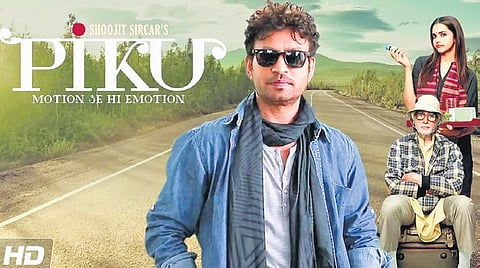

The creative team of biographical war drama Sam Bahadur had a task on its hands: the understanding that the treatment of Manekshaw’s relationships with women onscreen was vital. It was in stark contrast with Ranbir Kapoor’s role of Vijay Singh in Animal.
The character in the Sandeep Reddy Vanga-directorial, released recently on Netflix after a fiery theatrical run, was defined by aggression, in both love and hate. “Sam Manekshaw was a man surrounded by feminine energy and we ensured that even his cocky lines, and the use of words such as ‘sweetie’ came from a place of comfort by being around them, without being disrespectful,” says Bhavani Iyer, co-writer, Sam Bahadur.
For Bollywood, the seedbed of many Vijay Singhs from the beginning, a male lead sans the all-too-familiar toxic masculinity is a rather new phenomenon. And it’s coming from women, more accurately the increasing number of women writers and directors.
It isn’t too difficult to recognise a man written by a woman. Think social media-approved green flags. Think gentle, kind, respectful, supportive, and a listener without a saviour complex. Who are the men that come to mind? Amol in Meghna Gulzar’s Chhapaak with his understated support; Jehangir Khan in Gauri Shinde’s Dear Zindagi with his sorted mind and kind heart; Sunny in Zoya Akhtar’s Dil Dhadakne Do, who called a spade a spade; and Rana in Juhi Chaturvedi’s Piku for his rare ordinariness. In a world where art and life both imitate each other, these men are both an aspiration and inspiration.
Take, for instance, the character of Prashant Shrivastava played by singer Jassie Gill in Panga. Filmmaker Ashwiny Iyer Tiwari made a conscious effort to show him as an extremely kind and understanding husband to Kangana Ranaut’s professional kabaddi-playing Jaya Nigam. “Many people asked me why there wasn’t any conflict between the partners. How can the husband be this nice? But storytellers have the ability to change perceptions. In the real world, you may not find such a husband, but I wanted to write him to inspire the younger generation,” she says, adding, “What matters is the lens through which you look at a character and to what extent you want to push him.”
Vulnerability is another distinctive characteristic of men written by women. They challenge the quintessential hero who, until recently, was forbidden from emoting anything except mindless rage complemented with punches and kicks. But, men do cry, or at least should be able to when they feel like it, and that is the point women writers want to make with their female gaze.
So, how do women look at men? Director Ruchi Narain, who co-wrote Hazaaron Khwaishein Aisi, answers, “We already know how men see men. It is all over popular culture. But as women, we are also familiar with a side that men don’t often show in front of other men, and only reveal in front of women.” Syed Iqbal from Raazi (Meghna Gulzar and Bhavani Iyer,), Dan from October (written by Juhi Chaturvedi), Murad and Sher from Gully Boy (Zoya Akhtar and Reema Kagti), Robbie from Manmarziyaan (written by Kanika Dhillon), and Shutu from A Death in the Gunj (Konkona Sen Sharma) are examples.
The sensitivity of the female gaze is noteworthy in the portrayal of queer male characters as well. Karan Mehra in Made In Heaven and Pappu, the son of Konkona’s character in Dolly Kitty Aur Woh Chamakte Sitare, both written by Alankrita Shrivastava, are proof. “It is important to see men from the female perspective, and, yes, of course it is equally important to see women the way they see themselves,” she says.
Adds writer-director Tanuja Chandra, who directed Irrfan’s Qarib Qarib Singlle: “There is a certain broken-heartedness when women write stories and characters; there’s a fragility, a tender core, a quiet anxiety, a sense of being unsure, a kind of longing. In other words, the feeling of being utterly human.”